"It makes no sense to help civilian Ukrainians in the rear and the combat zone, if not to help the Armed Forces in the first place," said a medical volunteer.
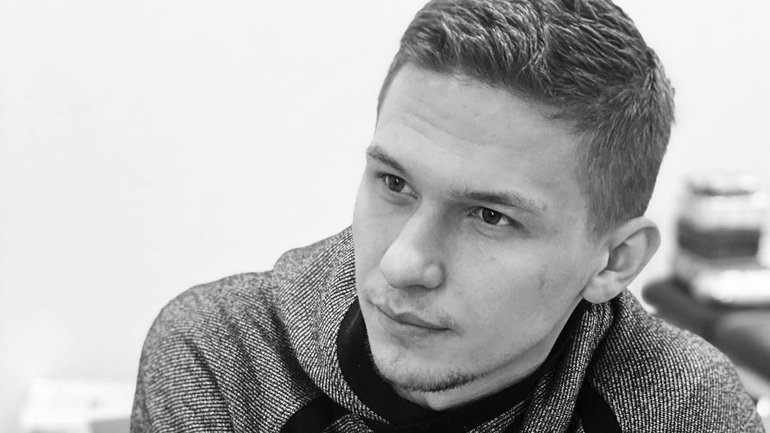
A native of Mukachevo, he has a degree in neurology. He knew he would not be a doctor because it was not his vocation. He was arranging charitable appointments with the doctors at the churches, hospitals and prisons, because it is an ideal combination of the medical profession, human care and Christian service.
Next is how he succeeded in launching this kind of help, God’s call for love and kindness, "healthy" churches and war fatigue.
"We began to act in advance"
— Rudy, one can get an impression that the Christian Medical Association was prepared for war?
— I am often told so. (Smiles). In my opinion, this is primarily God's work! Obviously, we also do our part in good faith. For example, one of the cases: once I met a Swedish doctor. He was a head of the local Christian Medical Association, that has up to one thousand and five hundred members. Now Sweden is very open to Ukraine. As a result, our Swedish partners are sending significant volumes of humanitarian aid that we are responsibly forwarding to the East and South. Well, I will repeat the obvious things: we work with people, organizations that we know or our friends know and recommend as having a good reputation.
About a month before February 24, I expected a war. And a week later I was almost sure of it. Then I began support talks with the foreign partners, including those in the United States.
We immediately decided that we would work in three directions. The first is assistance to the Armed Forces of Ukraine at the battlefront. That is, we first receive / purchase tourniquet (a means to temporarily stop bleeding), bandages (a special type of fixative-compressive bandage), painkillers… The second is to help hospitals. It was predicted that they would be filled with the wounded. There are 1,200 patients in one of the Lviv hospitals. One of the Vinnytsia hospitals sent those who could be sent elsewhere — they could not cope with the flow of people — and it did it. In one of the Dnieper hospitals 70 (!) resuscitation beds. Finally, the third area is helping people through churches.
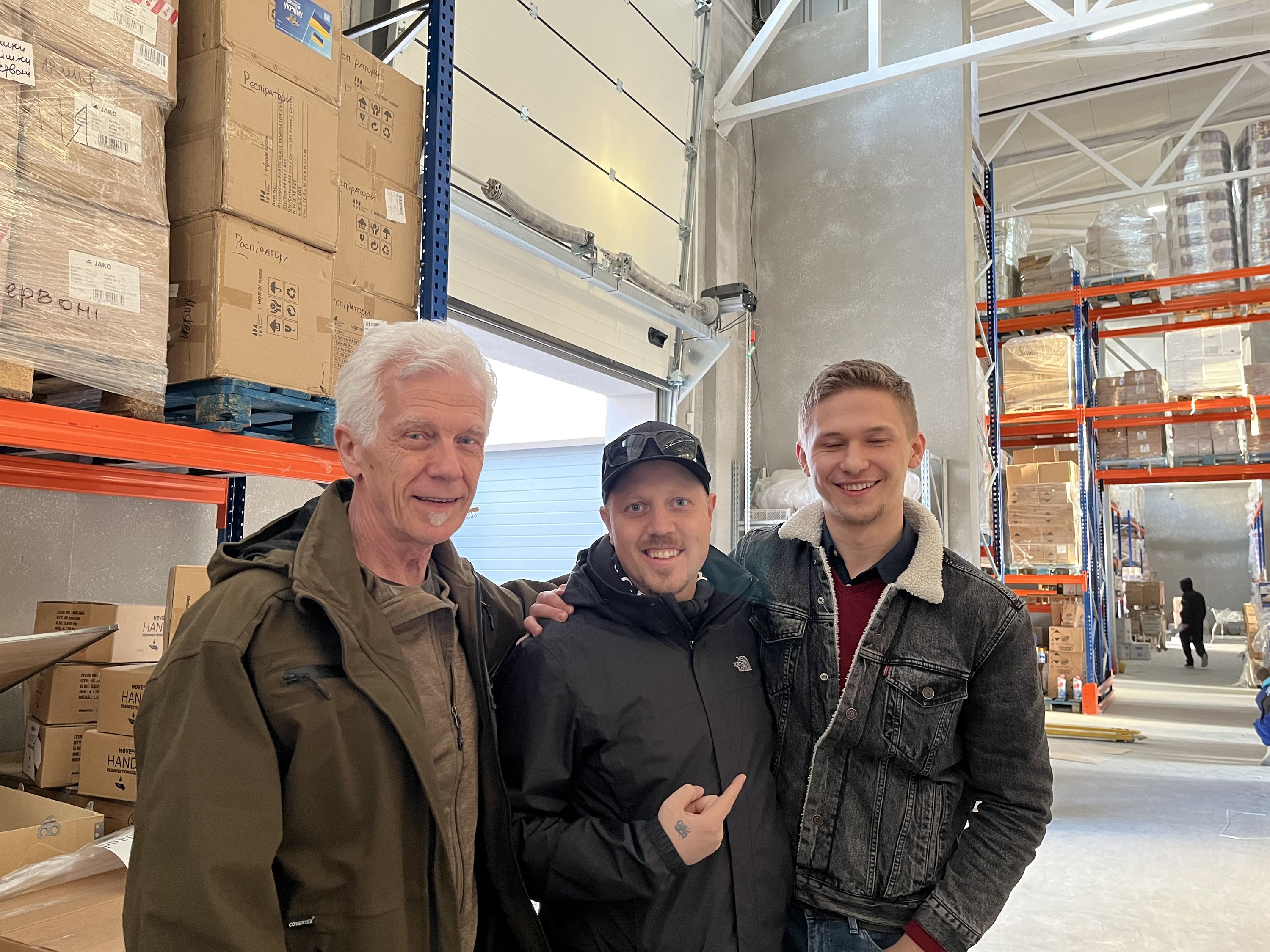
– By the way, what church do you attend?
– I have a Baptist background. I attend “Podorozh» (meaning Journey) church in Lviv where I’ve been living for the last nine years.
Thus, we began to act in advance, ordering insulin, thyroxine (for the treatment of thyroid disease) and so on. We realized: even if a person avoids a missile strike, artillery shelling, they can die from the diabetes.
— Rudy, many Protestant churches in Ukraine profess pacifism and as a result refrain even from the help of the Armed Forces. On the contrary, you have made it almost a priority…
Nowhere in the Bible it says that we should be pacifists. On the contrary, it is written that we must hate evil, resist it, seeking kindness, justice (Romans 12:9; 2 Timothy 2:22). Let us also recall how John the Baptist met the soldiers, who asked, what they should do (Luke 3:14) In response, they heard: "Do not offend anyone, nor make false accusations. Be content with your reward." In other words, he did not tell them to lay down their arms and go to work in the field, but instead to serve well.
So it makes no sense to help civilian Ukrainians in the rear and the combart zone, to preserve cultural and religious heritage, including temples, if not to help the Armed Forces! We have seen with our own eyes how our soldiers are supported not only by "Guys, we pray for you!" but the real help — in our case — medical! Even if it's blisters of paracetamol and aspirin!
— How is the volunteer movement developing in Ukraine now, how does it differ from what happened in 2014?
— In 2014, assistance was provided more locally, now — on a larger scale. Then the volunteer movement slowed down for a while – only some initiatives lasted longer than most. Something similar is about to happen now. Money is not a bottomless resource. Only the biggest will survive, those who found big sponsors – as in our case. Christian doctors and nurses from all over the world recommended us to each other. For example, a nurse in Singapore went to the chief doctor of the hospital where she works, with the idea of supporting Ukraine and information about the reliable contact person. Then the doctor received a photo of older people from Kharkiv and the surrounding area that were given drugs donated from Singapore. He gets satisfaction – we are all called by God to love and kindness. As a result, at an international conference of cardiologists in Tokyo, he shared his lifehack – how to quickly and effectively help Ukraine. That's how it works.
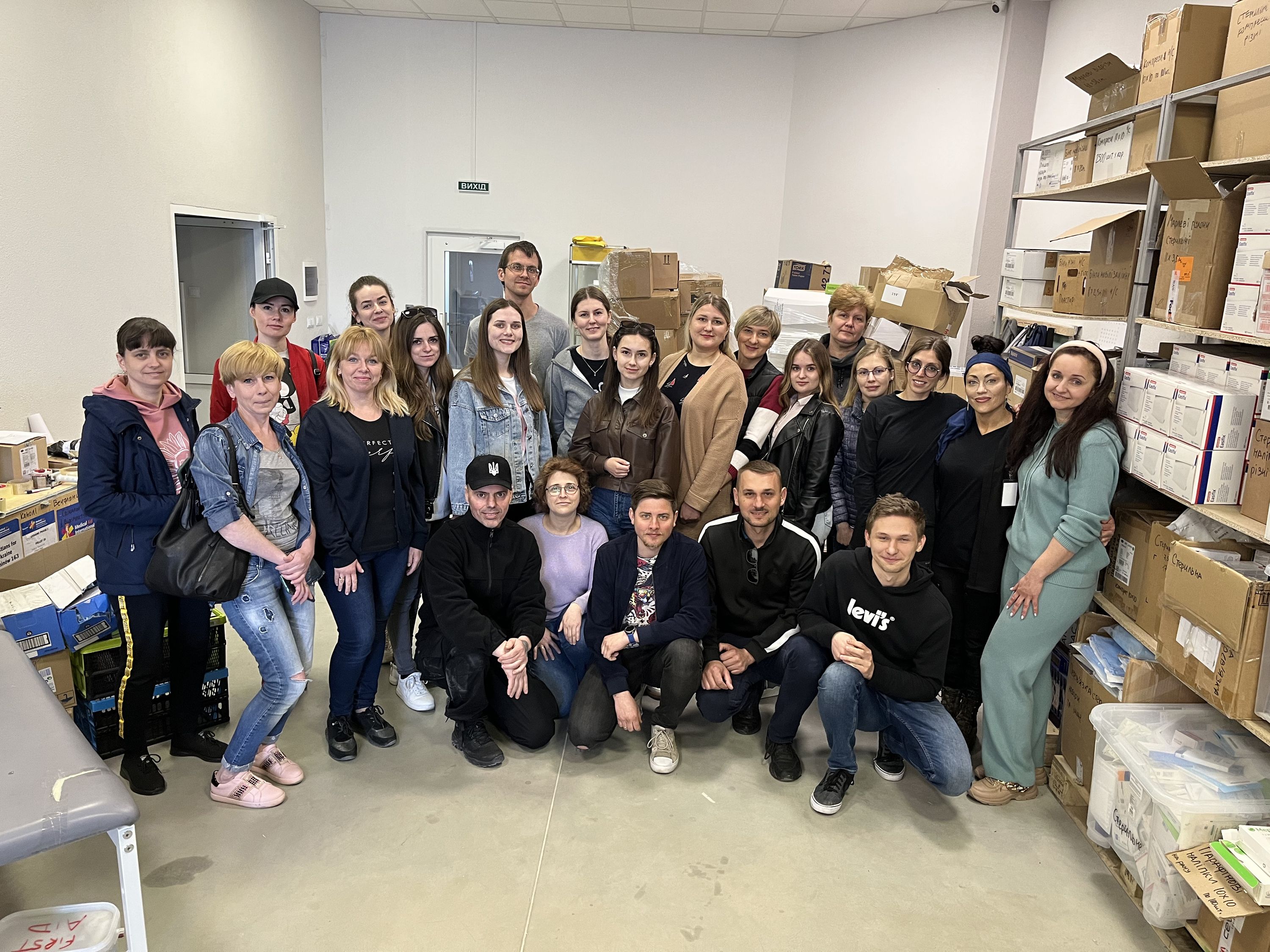
"This war must reveal the 'healthy' churches"
— I am reminded of 2014. At that time I was more connected with Zakarpattia region as a native of Mukachevo. One could hardly sense there a war in Ukraine. People were worried about the way the business or harvest was going… It is true that Zakarpattia is so self-sufficient. Now there are a lot of powerful volunteer movements that emerged there. Collective pain unites. And everyone gets hurt, except for the indifferent ones, but they are only few.
However, a week before the war I visited one of the temples there, where a speaker declared that there would be no war, because, according to the Bible, it would happen only under certain circumstances. The church is apolitical, closed to society, of which there are many in this region. Once I came to a smilir one with a proposal to hold a doctor appointment. (By the way, doctor appointments wake people up a lot — they feel love, care. The church becomes like a hospital and is renewed). I got replied that the church board would decide. Three weeks later, they said on the phone that they were still praying. They still pray.
This war must show the "healthy" churches. If they did not host refugees, did not help those who lost their property, and, perhaps, God forbid, relatives, did not visit the wounded, did not support orphans, what is the point of them?! As Jesus said, “For I was hungry and you gave me something to eat, I was thirsty and you gave me something to drink, I was a stranger and you invited me in, I needed clothes and you clothed me, I was sick and you looked after me, I was in prison and you came to visit me. Then the righteous will answer him, ‘Lord, when did we see you hungry and feed you, or thirsty and give you something to drink? When did we see you a stranger and invite you in, or needing clothes and clothe you? When did we see you sick or in prison and go to visit you? The King will reply, ‘Truly I tell you, whatever you did for one of the least of these brothers and sisters of mine, you did for me” (NIV, Matthew 25:35-40)
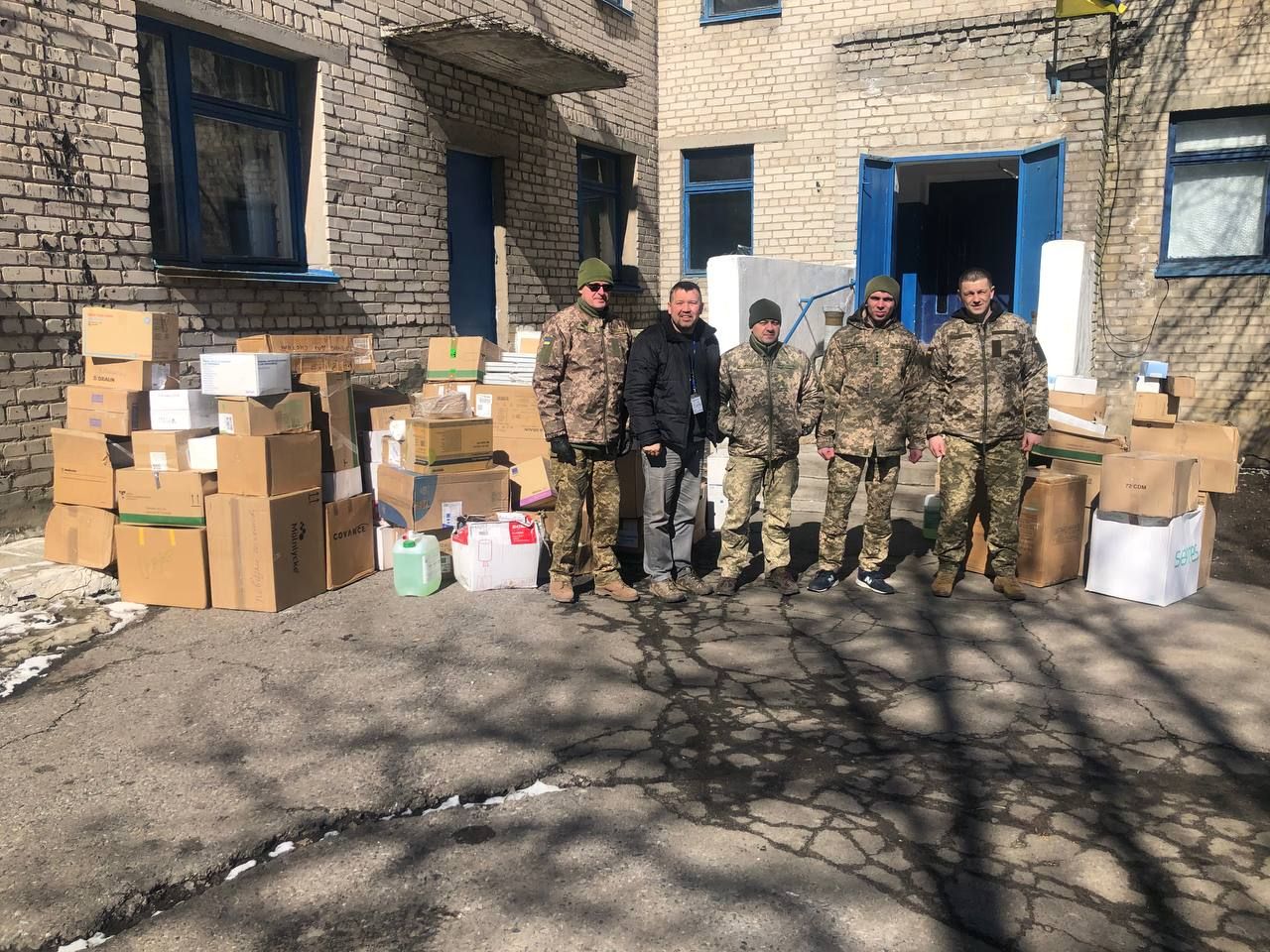
— The third month of the war is over — isn't there a fatigue of Ukraine abroad? Are European (global) organizations just as ready to help us? And what about inside Ukraine — do ordinary Ukrainians now help the battlefront? First, fatigue from the war, and secondly, many Ukrainians are on the verge of survival.
— Two weeks ago we were visited by the British. They said that 50% of the news in the UK was about Ukraine. We live in such a flow of information that in order to be highlighted, it must be as impressive as, for example, the crimes in Irpin and Bucha, the genocide in Mariupol. That's why fatigue obviously appears.
Other foreigners — a nurse from Portugal, a grandfather and a police officer from the United States, and two others from Canada — came and said they would be with us until the end of the war. By the way, all of them are not believers.
Some people believe that they are really saving lives. The team of the Christian Medical Association, does, too. It helps.
As for volunteering, people won’t be able to volunteer for a long time — they need to live and survive, therefore CMA employed people.
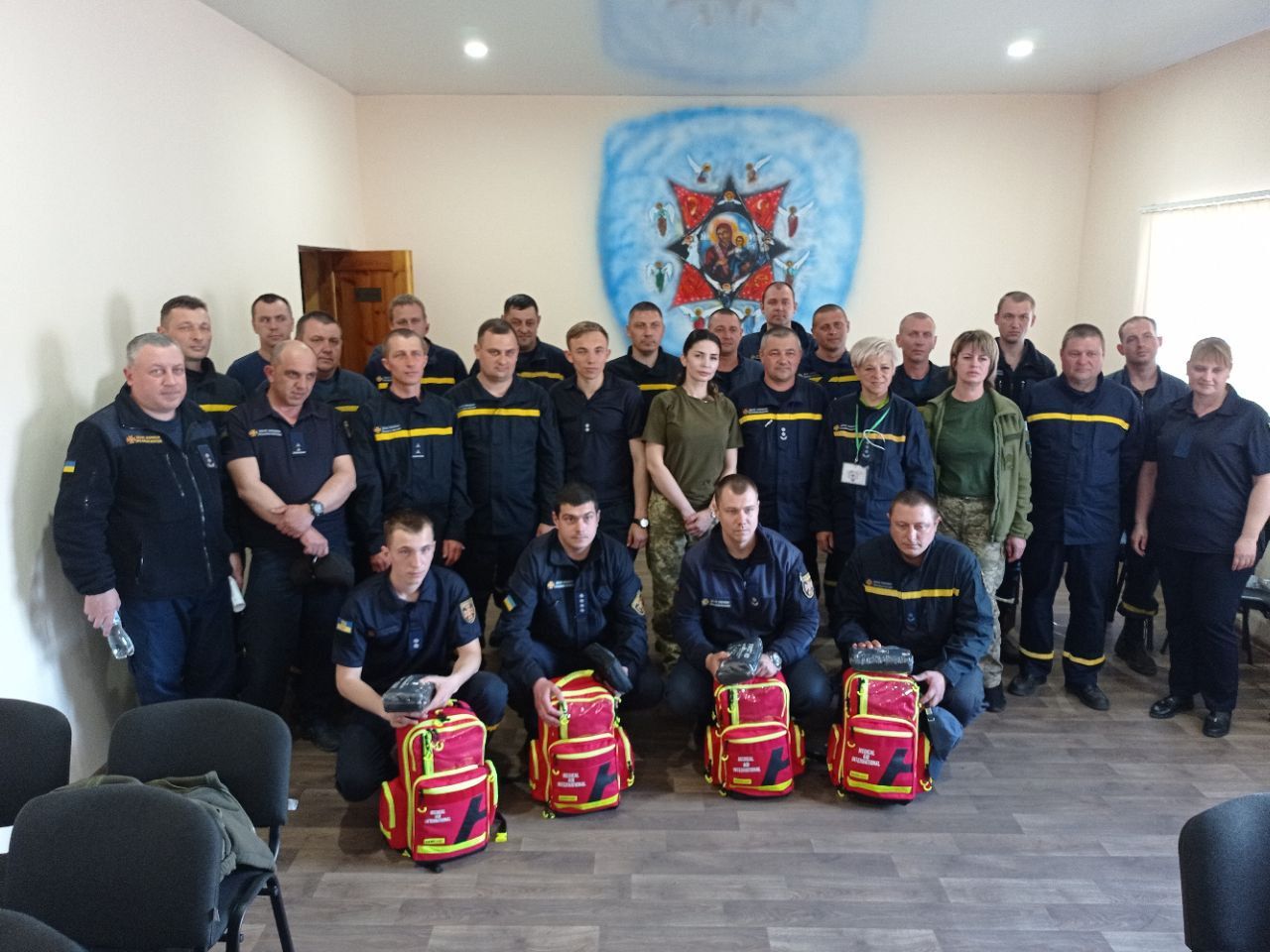
Logistics and cooperation with the state during the war
— What are the problems with the import of medical equipment and drugs in Ukraine by volunteers? Is there assistance at the border?
— I don’t deal with the logistics at all. If a hospital wants to donate two pallets of drugs, I give the phone number of our logistician and he decides how to deliver them to Lublin, and from there to Ukraine. Thank God, a logistics company with large warehouses is there in Lublin ready to help us. Usually, our shipments don’t wait at the border — we pass because we carry medicines. However, we do not have enough trucks, so we use foreign ones — other organizations, and they wait at the border for a week for entry, two weeks – for exit. Our ports are indeed blocked by the Russians. A ship used to carry up to 300 trucks, and now those 300 trucks deliver goods by land. A month ago, the payment for a 20-ton truck from Lublin to Lviv cost 300-500 euros, now — 2,500 euros.
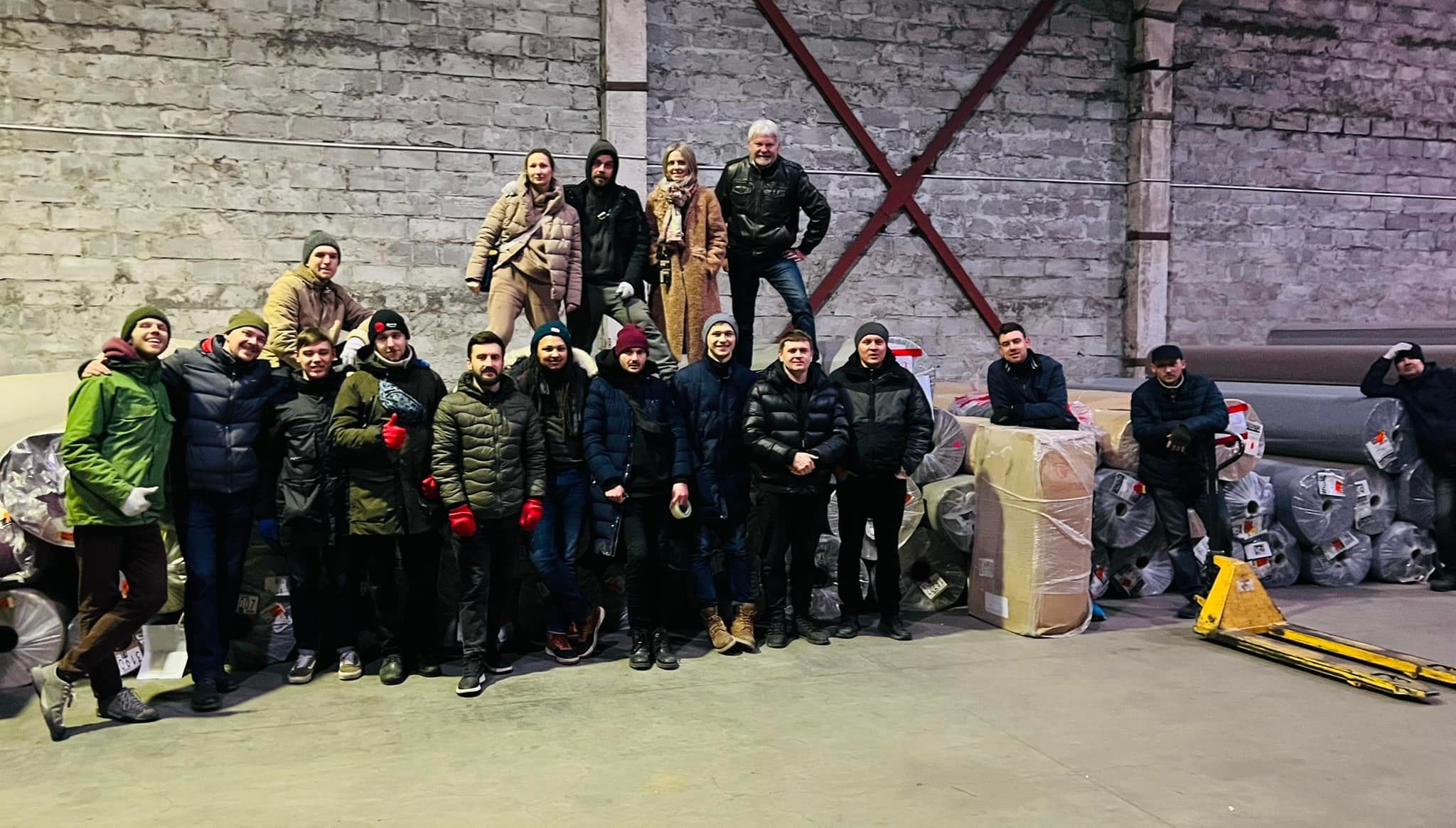
— And how about the logistics of Ukraine in the combat zone?
— In different ways: through Nova Poshta (express delivery company), which operate in settlements near cities, towns, villages where the battle takes place, by means of railway, churches, partner volunteer organizations, self-pickup.
We work according to the submitted request forms. Our shipments are small, because they contain medicines. For example, chaplain Mark in the Donetsk region receives our parcels through a pastor from Bakhmut, and before that through Nova Poshta in Zhovti Vody near Bakhmut. The clergy married couple brings medicines from us to the Mykolayv hospitals. They often transit from Zakarpattia through Lviv.
— Is there cooperation with the State? What should Ukraine, as a State, do to make it easier and more simple for volunteers to deliver all the necessary goods to Ukraine?
— The Christian Medical Association has many faithful friends in the Ministry of Health: Vasyl Strilka, Oleksandr Danyliuk, Pavlo Grulenko. They often took part in our projects. Even before the war, I called Pavlo, who is in charge of emergency health care, asking if anything was needed. At that time, 70,000 tourniquets were needed. And CMA was looking for them. Now this figure reaches 700,000 tourniquets.
There is cooperation with the State. It consults with us, large charitable organizations, volunteer projects on relevant bills, provide all the documents needed to cross the border, and so on.
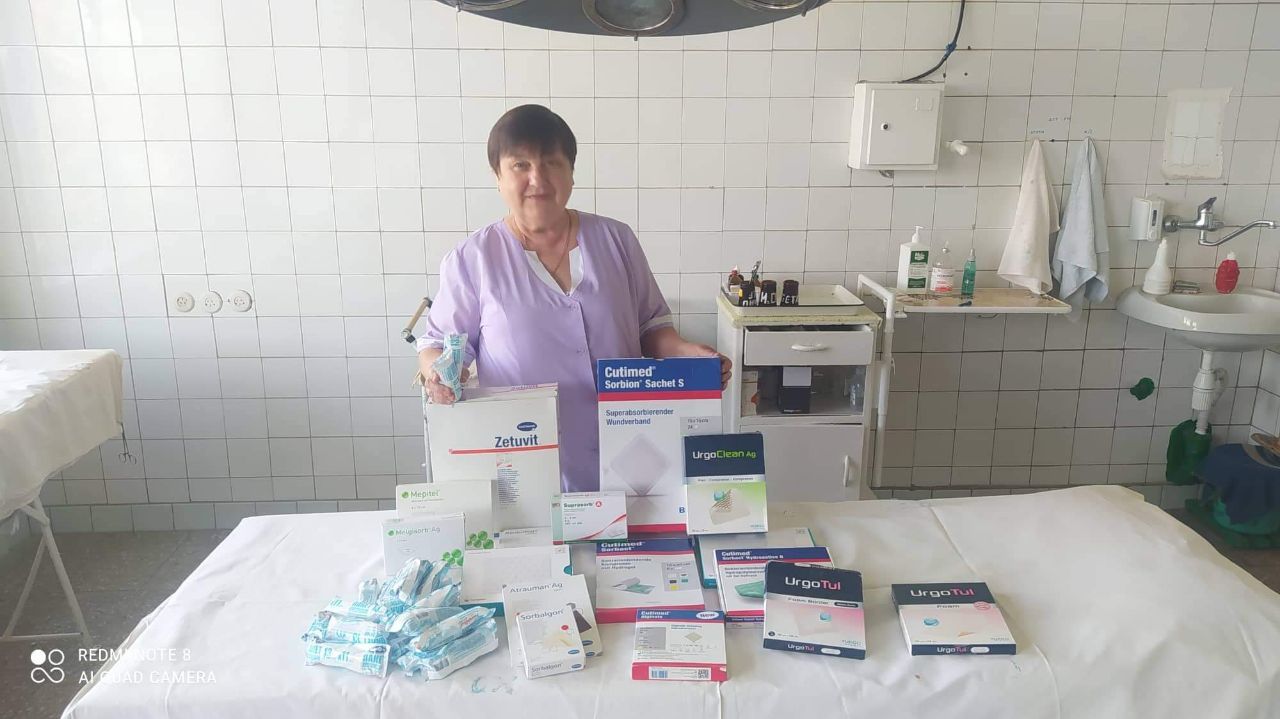
"Now to remain human — you need to have love for people"
— The war lasts for the fourth month. Naturally, fatigue approaches, moods fluctuate. How do you, Rudy, cope with it?
— I am inspired by the stories of pastors, chaplains from the battlefront — about God who is there. For example: one settlement in Donbass was heavily shelled — as if they wanted to wipe it off the face of the earth. Half of the shells did not explode… You can think, say, because of the Soviet-style shells. But I see the hand of the Lord. Likewise in the situations where soldiers are tempted to smoke or change their location, and in 5-10 minutes — those places are completely destroyed — like craters. God works!
Sometimes it hurts to refuse medicines to the lonely older people, single mothers, mothers with the disabled children, large families, because they live or have moved to Western or Central Ukraine, while we primarily deliver medicines to the war zone. Even in Kharkiv — time and again, although the supply of medicines has not been established there yet ... It is painful. However, you have to make a choice.
I pray and read the Bible a little now. I'm not alone. My team, too – once we shared with each other. One of my pastors said that now to remain human, you need to have love for people.
I have no acquaintances, much less relatives in Mariupol, Donetsk, Luhansk, Donbass in general, but they are all my people.
Again, Jesus said, “ For I was hungry and you gave me something to eat, I was thirsty and you gave me something to drink, I was a stranger and you invited me in, I needed clothes and you clothed me, I was sick and you looked after me, I was in prison and you came to visit me. Then the righteous will answer him, ‘Lord, when did we see you hungry and feed you, or thirsty and give you something to drink? When did we see you a stranger and invite you in, or needing clothes and clothe you? When did we see you sick or in prison and go to visit you? The King will reply, ‘Truly I tell you, whatever you did for one of the least of these brothers and sisters of mine, you did for me” (NIV, Matthew 25:35-40)
In other words, two commandments are now being fulfilled: love God with all your heart and love your neighbor as yourself.









